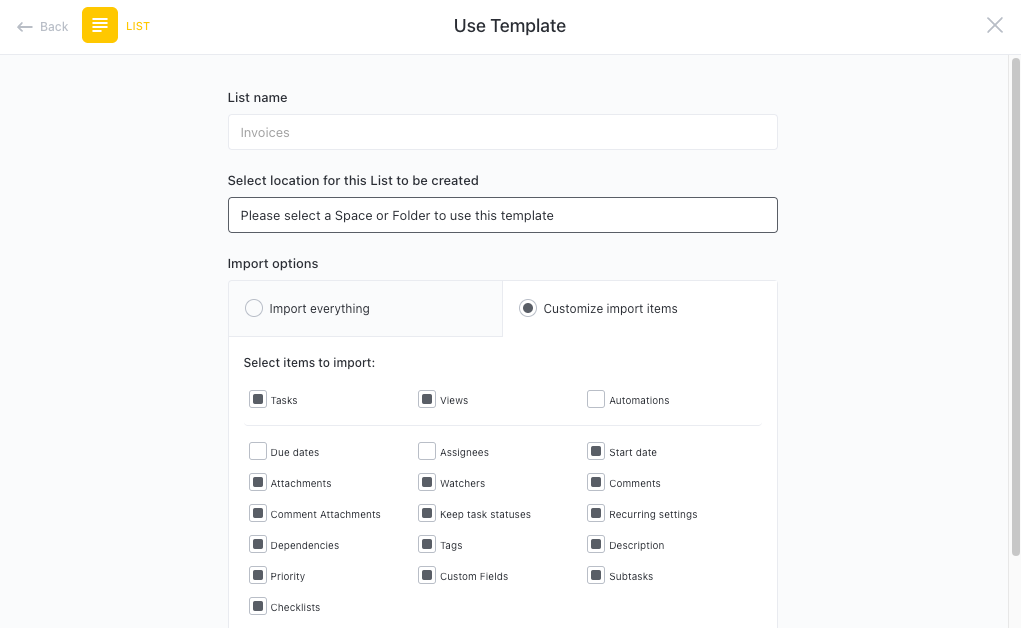Effective communication and coordination are essential in the fast-paced world of law enforcement. That's why police departments need a meeting agenda template that keeps them on track and ensures that no important topics are overlooked. With ClickUp's Police Officers Meeting Agenda Template, you can streamline your meetings and focus on what matters most. This template allows you to:
- Discuss crime updates and allocate officers to specific cases
- Plan and execute community outreach initiatives to foster positive relationships
- Review and update departmental policies to ensure compliance and effectiveness
Don't let important discussions fall through the cracks. Try ClickUp's Police Officers Meeting Agenda Template today and take control of your meetings!
Benefits of Police Officers Meeting Agenda Template
Keeping police departments running smoothly requires efficient meetings. The Police Officers Meeting Agenda template helps achieve this by:
- Ensuring all important topics are covered, from crime updates to officer assignments
- Providing a structured format to keep discussions focused and on track
- Documenting meeting outcomes, decisions, and action items for future reference
- Promoting transparency and accountability within the department
- Streamlining communication and coordination among officers and departments
Main Elements of Police Officers Meeting Agenda Template
ClickUp's Police Officers Meeting Agenda Template is designed to help you organize and streamline your department's meetings. Here are the main elements of this template:
- Doc Template: Use ClickUp's powerful Docs feature to create a structured and collaborative meeting agenda that can be easily edited and shared with your team.
- Custom Statuses: Customize task statuses to track the progress of each agenda item, such as “To Discuss,“ “In Progress,“ and “Completed.“
- Custom Fields: Add custom fields to capture important information for each agenda item, such as “Meeting Date,“ “Presenter,“ and “Discussion Notes.“
- Different Views: Access the meeting agenda in different views, such as “Meeting Overview“ to see all agenda items at a glance, “Individual Agenda Items“ to focus on specific items, and “Meeting Notes“ to document discussions and action items.
With ClickUp's Police Officers Meeting Agenda Template, you can ensure that your meetings are organized, efficient, and productive.
How to Use Meeting Agenda for Police Officers
Running an effective meeting for police officers requires careful planning and a clear agenda. Follow these four steps to use the Police Officers Meeting Agenda Template:
1. Determine the meeting objectives
Before creating the agenda, identify the specific objectives you want to accomplish during the meeting. Are you discussing recent crime trends, reviewing department policies, or planning upcoming community events? Clearly define the purpose of the meeting to ensure that everyone is on the same page.
Use Goals in ClickUp to set clear objectives for your meeting and track progress towards achieving them.
2. Outline the agenda items
Once you have determined the objectives, outline the agenda items that need to be covered during the meeting. Start with any urgent matters or time-sensitive updates, then move on to regular agenda items like officer reports, training discussions, or community engagement initiatives.
Use the Board view in ClickUp to create a visual agenda and easily rearrange items as needed.
3. Assign time limits to each agenda item
To ensure that the meeting stays on track and doesn't run over time, assign specific time limits to each agenda item. This will help keep the discussion focused and prevent any one topic from dominating the entire meeting. Be realistic with your time allocations and allow for breaks if needed.
Use the Gantt chart in ClickUp to visually allocate time for each agenda item and ensure a well-paced meeting.
4. Share the agenda with participants
Once you have finalized the agenda, share it with all meeting participants well in advance. This will give them time to review the topics, gather any necessary information, and come prepared to contribute to the discussion. Consider sending out the agenda via email or using a collaboration tool like ClickUp to ensure everyone has access to it.
Use Email or ClickUp's built-in communication features to send the agenda to all attendees and encourage them to come prepared.
By following these steps and utilizing the Police Officers Meeting Agenda Template in ClickUp, you can run efficient and productive meetings that address important matters and keep your team informed.

Get Started with ClickUp’s Police Officers Meeting Agenda Template
Police departments can use this Police Officers Meeting Agenda Template to streamline their official meetings and ensure that all important topics are covered.
First, hit “Add Template” to sign up for ClickUp and add the template to your Workspace. Make sure you designate which Space or location in your Workspace you’d like this template applied.
Next, invite relevant members or guests to your Workspace to start collaborating.
Now you can take advantage of the full potential of this template to organize your police meetings:
- Use the Crime Updates View to stay informed about the latest criminal activities in the area
- The Officer Assignments View will help you keep track of officer deployments and tasks
- Use the Community Outreach View to plan and discuss community engagement initiatives
- The Departmental Policies View will give you a space to review and update departmental policies
- Create different tasks for each agenda item and assign them to the appropriate officers
- Set due dates for each task to ensure timely completion
- Take advantage of the Comments section to encourage collaboration and gather input from team members
- Monitor and analyze meeting outcomes to improve future meetings and enhance departmental efficiency.








